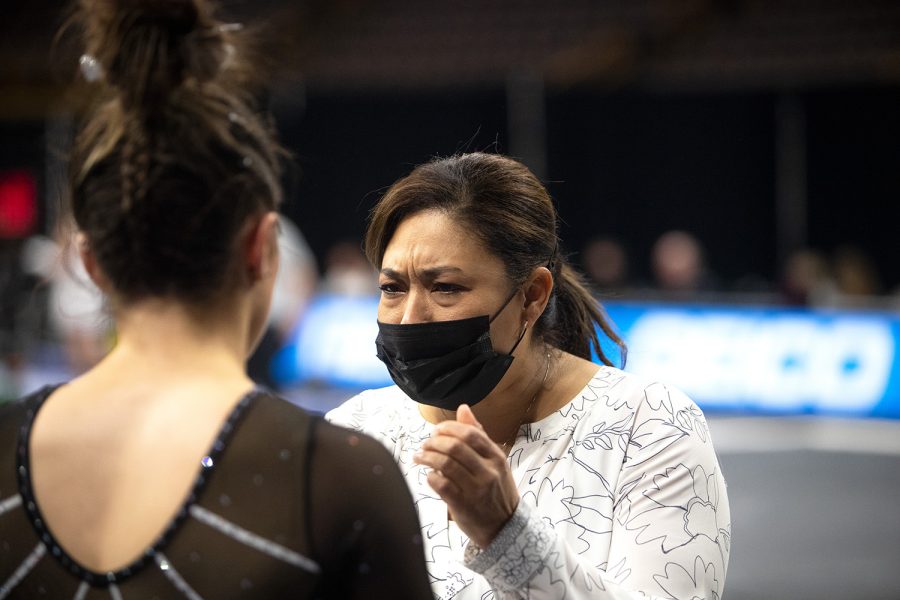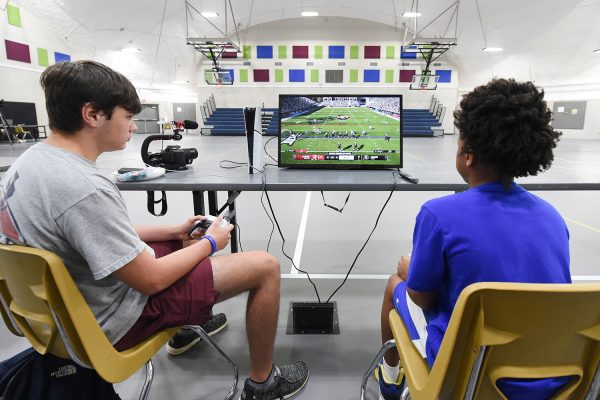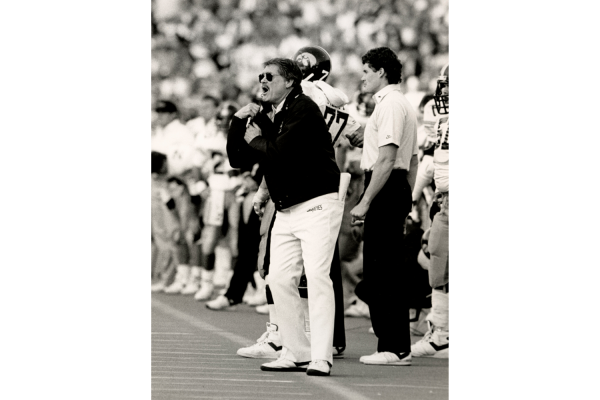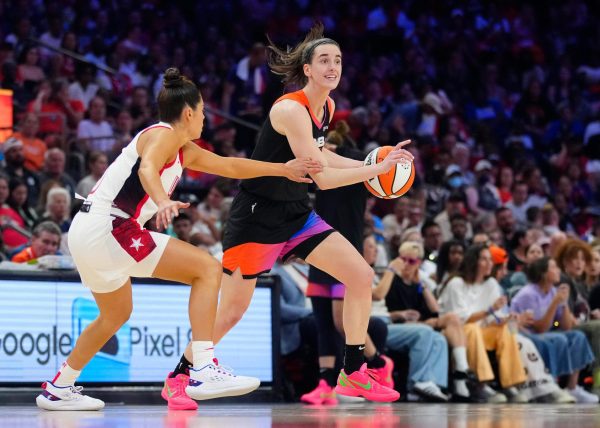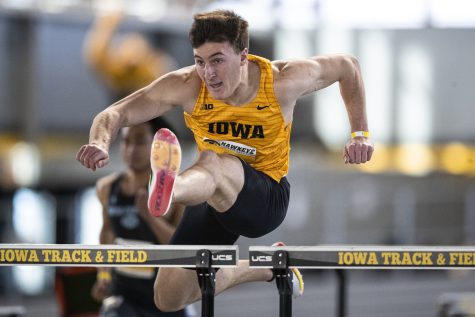Iowa women’s gymnastics head coach Larissa Libby changing the culture of the sport
After she went through mental health and identity issues after competing on the world stage, Libby is determined to change the destructive environment of the sport.
Iowa head coach Larissa Libby instructs her team during a gymnastics meet between Iowa and Texas Women’s University at Carver-Hawkeye Arena on Friday, Jan. 14, 2022. The Hawkeyes defeated the Pioneers, 196.125-189.300.
March 26, 2023
Iowa women’s gymnastics head coach Larissa Libby said her years as a competitive gymnast in Canada — becoming a national champion and member of World Championship and Olympic teams — took a toll on her mental health that still persists.
During that time, Libby said she was treated as if gymnastics was all that mattered.
“I really felt like I struggled, and I’m still struggling with learning what I bring to the table because no one that was in my gymnastics life ever told me I was good at anything but gymnastics,” Libby told The Daily Iowan. “Nor did they ask, nor did they care. As long as you can do gymnastics, that was all that mattered. I was struggling because that’s how I identified myself, as a gymnast, for my whole life from when I was three years old. I didn’t know anything else besides that.”
The 19-year Hawkeye head coach is trying to turn that mindset on its head.
Instead of focusing solely on her athletes as gymnasts, Libby concentrates on enriching each gymnast as a person, too.
“It’s such a bad culture that just keeps repeating itself, and it wasn’t getting better,” Libby said. “I always said that if I ever made it, I wanted to be able to prove that you did not need to be a tyrant and that you could have and cultivate good relationships with your kids and still be the best. That’s where everything started for me.”
Libby said her coaching style looks with an eye toward her athletes’ futures outside of gymnastics.
“I don’t want them to struggle when they leave college, and they’re never going to make it if they identify themselves only as a gymnast,” Libby said. “I want them to be successful when they’re on the team, but that success is not dictated by winning events or winning competitions.”
Libby said she believes the root of the bad culture in gymnastics comes from its deductive scoring system, teaching athletes that they need to be perfect.
“It starts from perfection, then deducts,” Libby said. “That’s the whole premise of our sport — 10.0 and then deducts. There is not a damn sport that does that. Nothing else does that. That speaks volumes about the bad stuff in the sport. You’re telling somebody that they’re never good enough, that no matter what they do, it could always be better. And I just think that’s wrong.”
Libby said this form of judging eventually takes a toll on many athletes.
“I watched so many people struggle with identity and depression when they walk away from gymnastics,” Libby said. “When somebody else is judging you, you have to identify different things so that you don’t feel empty every time you walk away because somebody has to lose.”
Libby said her job as a college coach can alter the trajectory of an athlete’s life.
That’s why she is so focused on encouraging gymnasts and maintaining a positive mindset rather than an attitude that tears her athletes down.
“I don’t think that people realize the impact that you have on a child in four years, and I think that these are some of the most impressionable times in their lives,” Libby said. “It’s when they change the most and when they grow the most. It’s when they’re supposed to figure themselves out. As coaches, we have a massive part in developing their sense of self. You’d be amazed how little it takes to destroy it, especially for a female.”
First-year Hanna Castillo commented on how impactful Libby’s coaching style has been during her first year as a GymHawk.
“Larissa has made a point that, at the end of the day, she doesn’t really care if we win or lose as long as we’re the best people that we can be and we’re supporting each other and being there for one another,” Castillo said. “She makes it her mission for us to get that embedded in our brains.”
Castillo, the Boca Raton, Florida, native, said Libby has made Iowa City feel like home.
RELATED: Freshman Hanna Castillo performs under pressure with Iowa women’s gymnastics
Fellow first-year and Larissa Libby’s daughter Bailey Libby also commented on the uniqueness of the environment her mom created.
“The culture and the family aspect of the team is something that you can’t find anywhere else,” Bailey Libby said.
Larissa Libby recognizes the mental burdens many of her athletes carry into the Iowa program and is determined to stop the negative cycle from repeating.
“Our whole goal is to flip that culture,” Larissa Libby said. “That’s why we talk about empowering their voice[s]. From three years old, they’re told to just don’t say anything and just listen. If something goes wrong, they don’t get to tell you what they feel. That is so dangerous. They don’t get to have a say in their own life or their own body.
“I remember that I got told that, ‘As long as you’re trying to have relationships with your athletes and be close to your kids, you’ll never be successful.’ That drives me every single second of every day, every time I wake up.”



